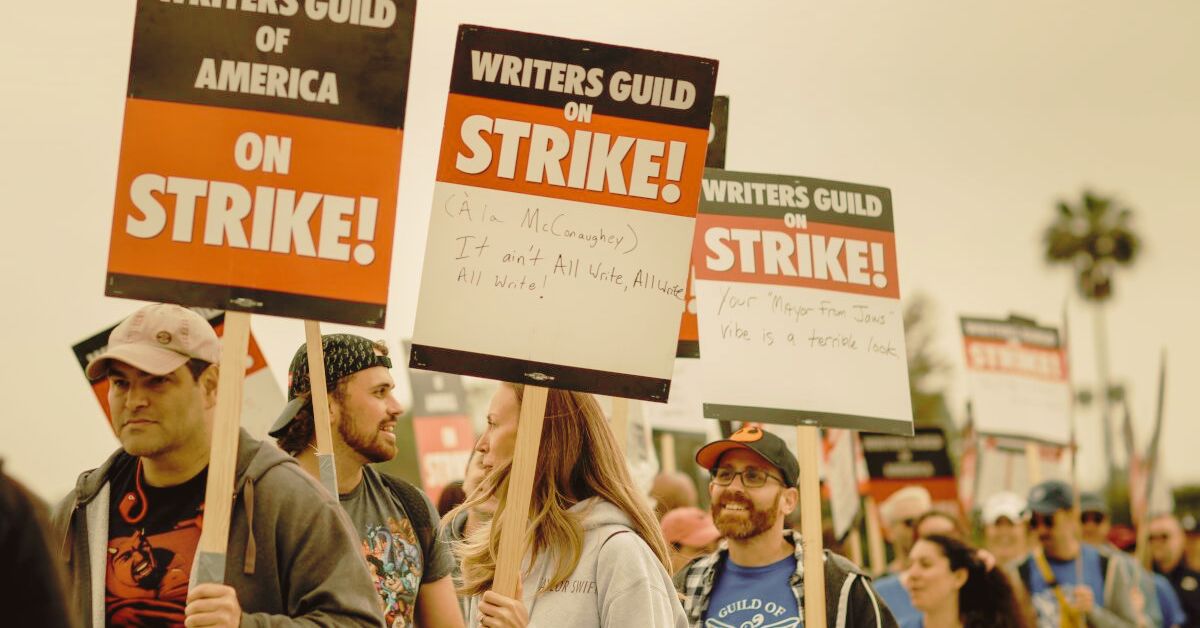In a historic turn of events, the entertainment industry is breathing a collective sigh of relief as members of the Screen Actors Guild‐American Federation of Television and Radio Artists (SAG-AFTRA) voted overwhelmingly to ratify their new contract. This pivotal moment officially draws the curtain on the longest labor dispute in Hollywood’s storied history.
With an impressive 78% in favor, the contract’s approval comes as a beacon of hope for working performers. Fran Drescher, the union’s president, expressed her elation, stating, “This contract is an enormous victory for working performers, and it marks the dawning of a new era for the industry.”
The resolution follows the suspension of SAG-AFTRA’s 118-day strike against major studios on Nov. 8, after a tentative agreement was reached. The subsequent ratification vote, with a turnout of 38%, was crucial for formally ending the prolonged walkout.
The Alliance of Motion Picture and Television Producers (AMPTP), representing the studios, issued a statement congratulating SAG-AFTRA on the historic gains and protections achieved for performers. An AMPTP spokesperson stated, “With this vote, the industry and the jobs it supports will be able to return in full force.”
The groundbreaking deal includes a 7% increase in minimum rates for the first year and introduces a $40 million residual bonus for actors in streaming shows. Notably, it establishes protections against the use of artificial intelligence (AI) to replicate performances, a first in the industry. Actors must now consent to being replicated, with the purpose of the AI performance outlined in reasonably specific terms.
Additionally, you might be interested in reading some of our other posts:
- Who is Christian Stracke? Unveiling the Financial Maestro Behind PIMCO’s Success!
- Is Adam Driver Related to Minnie Driver? Unraveling the Hollywood Connection
However, concerns persist among some actors, as the contract does not prohibit studios from training AI on actors’ images to create entirely synthetic performers. Despite the union’s push for a veto over such use, the studios agreed only to provide notice. The deal mandates actor consent if a synthetic performer includes a recognizable facial feature of a real actor.
Duncan Crabtree-Ireland, the union’s chief negotiator, acknowledged the agreement’s imperfections but argued it was the best deal achievable with the leverage at hand. “We reached a deal right at our point of peak leverage in this process,” he emphasized.
The union’s demand for a new revenue stream to compensate actors on streaming platforms was partially met with the introduction of a $40 million bonus residual, modeled after a similar Writers Guild of America deal. This bonus includes a 75% residual for actors in the most-watched made-for-streaming shows, with 25% allocated to a Success Bonus Distribution Fund benefiting actors on other streaming shows.
Although the union fell short of its initial $500 million annual request, the compromise is seen as a step forward. The fund will be jointly administered by the union and the studios, with commitments to revisit and enhance its contributions in future negotiations.
Beyond the financial aspects, the comprehensive deal addresses various industry facets, including regulations on self-taped auditions, online casting platforms, and provisions for diverse actors in hair and makeup.
The strike, declared on July 13, witnessed actors joining forces with the Writers Guild of America on picket lines, a rare occurrence since 1960. The voter turnout and margin of support surpassed the 2020 ratification vote, indicating a unified front among SAG-AFTRA members.
As the industry eagerly welcomes the resolution, the ratified contract paves the way for a rejuvenated entertainment landscape, embodying the resilience and collaborative spirit of Hollywood’s creative forces.
